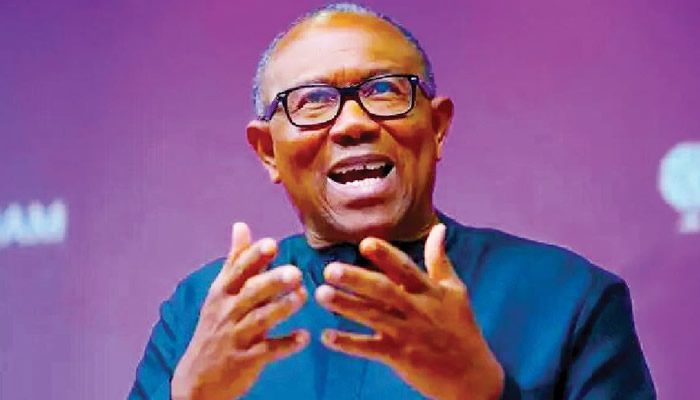Peter Obi, the Labour Party’s presidential candidate in the 2023 Nigerian elections, has unequivocally affirmed his commitment to the party, stating his intention to run for the presidency again on the Labour Party platform in 2027. This declaration, made in a widely circulated video, addresses speculation about his political future and reinforces his dedication to the party despite internal challenges. Obi’s commitment comes at a time of significant internal strife within the Labour Party, providing a much-needed anchor for his supporters and potentially stabilizing the party’s trajectory moving forward. His continued presence within the party could be instrumental in resolving internal disputes and charting a clear course for the party’s future endeavors.
Obi attributes the ongoing crises within the Labour Party, and indeed across other political parties in Nigeria, to deliberate interference by the government. Recalling his experience during the Yar’Adua administration, he highlighted how previous governments actively intervened to resolve party disputes, contrasting it with the current situation where such interventions seem absent. He argues that this deliberate neglect of internal party matters is a calculated strategy to destabilize the political landscape and undermine the effectiveness of opposition parties. This accusation points to a deeper concern about the health of Nigeria’s democracy and the potential manipulation of political structures to maintain the status quo. Obi’s framing of the issue connects the internal party struggles to larger issues of governance and democratic processes, further emphasizing the need for systemic reforms.
Addressing the issue of electoral integrity, Obi emphasized the importance of citizen vigilance in ensuring that votes are accurately counted. While acknowledging the role of party agents in safeguarding the electoral process, he stressed that the ultimate responsibility lies with the voters themselves. This call for active participation in safeguarding the democratic process empowers citizens and highlights the importance of individual responsibility within the larger framework of electoral reforms. Obi’s message transcends mere party politics, focusing on the broader issue of democratic participation and the need for a more robust and transparent electoral system.
Obi also addressed the challenges of effecting genuine change in Nigeria, acknowledging that any attempt to disrupt the existing power structures will be met with resistance from those who benefit from the current system. He encouraged his supporters, particularly the youth, not to be discouraged by these obstacles but to remain steadfast in their pursuit of a better Nigeria. This message of resilience and perseverance underscores the difficulty of systemic change while simultaneously inspiring continued engagement in the political process. It acknowledges the entrenched nature of existing power structures and the need for sustained effort to overcome them.
Looking towards the future, Obi introduced the concept of retirement age for political office holders, suggesting that there should be a limit to the age at which individuals can contest elections. He noted that he would be 65 by the time the 2027 elections arrive, implying that he would not seek office beyond a certain age, likely in his 70s. This proposition, while not yet formalized, sparks a conversation about generational shifts in leadership and the potential benefits of incorporating age limits in political office. It reflects a growing sentiment, particularly among younger Nigerians, for a transition to newer generations of leaders.
In conclusion, Peter Obi’s recent pronouncements offer insights into his political strategy and his vision for Nigeria. His reaffirmation of loyalty to the Labour Party provides a sense of stability amidst internal turmoil. His accusations of government interference in party politics, coupled with his call for citizen vigilance in safeguarding the electoral process, underscores his commitment to strengthening democratic institutions. His acknowledgement of resistance to change and his call for perseverance, combined with his proposal for age limits in political office, paints a broader picture of his long-term vision for Nigeria. His pronouncements are not merely political posturing but contribute to the national dialogue on critical issues of governance, democratic reform, and intergenerational leadership transitions. His continued engagement in the political landscape, even after the 2023 elections, suggests a sustained commitment to the betterment of Nigeria and a belief in the power of persistent effort to achieve meaningful change.














